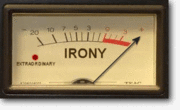that’s the way it should be, I agree with this. These bankers have little to zero repercussions for their decisions
What this comment and the original question misses is what actually happened with Iceland’s banking sector. Iceland’s domestic banking sector was fine. But several of Iceland’s banks had decided to seek growth in the UK market, and exploited a regulatory gap. Under the UK’s regulations, the Icelandic parent was responsible, but Icelandic regulation did not extend to include UK depositors. Icelandic banks had 160000 UK customers, a little more than half the total population of Iceland. Iceland’s government attempted to limit the scope of their bailout to their domestic market (that they regulated), and the UK basically squeezed them hard.
Bailing out the banks was never really in question, because that intrinsically meant they would have had to deal with those 160k accounts. By the time they were compelled to do so, any window of opportunity had closed. But the sheer scale of the problem meant I doubt Iceland’s government could have dealt with it anyway.
Bankers are not held in high esteem in Iceland these days. The rest of the economy had to shoulder the costs of an enormous bailout that was a major drain on public finances for a decade.
I remember a lot of our local authorities (local government) seemed to have accounts with Icelandic banks around that time.
and this is EVERYTHING wrong with banking. their “responsibility” to their shareholders to show growth and profit margins (aka, capitalism) means they take bigger and bigger risks with other people’s money.
In the end, anytime there’s a failure in THEIR system the taxpayers end up with the burden. either directly or indirectly. These safety nets to bail out corporate entities by the government without repercussions to those who are causing the problem is just bullshit.
I agree with your elaboration, but it is just furthering the main point. It was not political ideology that saw Iceland take a different response, but the specific circumstances of the collapse and their ability to respond to it.
Credit Suisse operates more like a criminal organisation than a bank. How do these fuckers keep getting away with it ?
I think the issue goes beyond banking though and is a reflection of how the sustainable path is typically not what is rewarded by wall st when there are profits to be made in the near term. If everyone in your sector is doing x and making money today, but you think those companies are driving themselves off a cliff in the medium term, your choices are to follow and expose your company to the same failure, or consciously leave profit on the table while overseeing a sinking stock price likely resulting in being ousted by your board. Your take home pay is almost certainly higher in the former scenario, even if you know it is wrong and is doing your company and its share holders a disservice.
that analogy is quite similar to many different aspects of society these days. everyone wants more more more. Consumerism at its finest. Some of us would be happier with a much simpler life…
I think this is where the idea that executive compensation has to be restructured towards longer term metrics than just quarter to quarter stock prices. If Wall St creates incentives that put short term gains over sustainability, then there needs to be a counter balancing force that makes executives refocus their perspective.
It is a problematic idea in many ways, because I dont want my package shrinking by 10s or millions or more because the doofus who replaced me ran the place into the ground, but maybe that just further puts the emphasis on sustainability and incentivizes CEOs to work towards an effective transition plan so they are as concerned during their tenure about the leaving the company in good health as they are about getting their share price up.
same could be said for politics… 4yr terms and all that.
Could in part be the Enron problem - poor corporate controls mean that even the good actors take bad risks or fall behind. Make responsible loans, and you don’t get promoted at CS, make a big winning bet and up the ladder you go.
Transatlantic financial contagion ping-pong, US turn again - First Republic in real trouble now. Useful for the Trumpies that the problems are Bay Area, so they can blame woke risk management.
In other investment news, a fund called Ethical Capital Partners just bought Pornhub

The problem is that depending on the institution, it may not be the bankers themselves who suffer repercussions if that’s the only consequence. More likely pension funds and the like, even though you could (and should) argue that’s just capitalism in action.
The more interesting thing is whether there’s any remuneration clawback scheme in place.
I agree, but you could say that from all worldwide operating banks I’m afraid.
Nah, most banks are way more boring. SVB and First Republic are failing because of good old-fashioned ineptitude. Swiss banking secrecy laws are a bit of a poison chalice, even in their current state.
Yeah, but what about the biggest ones? HSBC, Morgan Chase, Citibank, Goldman Sachs, Paribas, UBS, without even starting to consider big Chinese banks?
My take is that all of them operate on the same kind of basis. There is no morals at that level, with so much money at stake.
As we’ve seen with Barings, it takes one rogue trader to crater a large institution.
Meanwhile, several very large U.S. banks put $30B into First Republic, and it is still down 16% today, trading right where it was before that announcement.